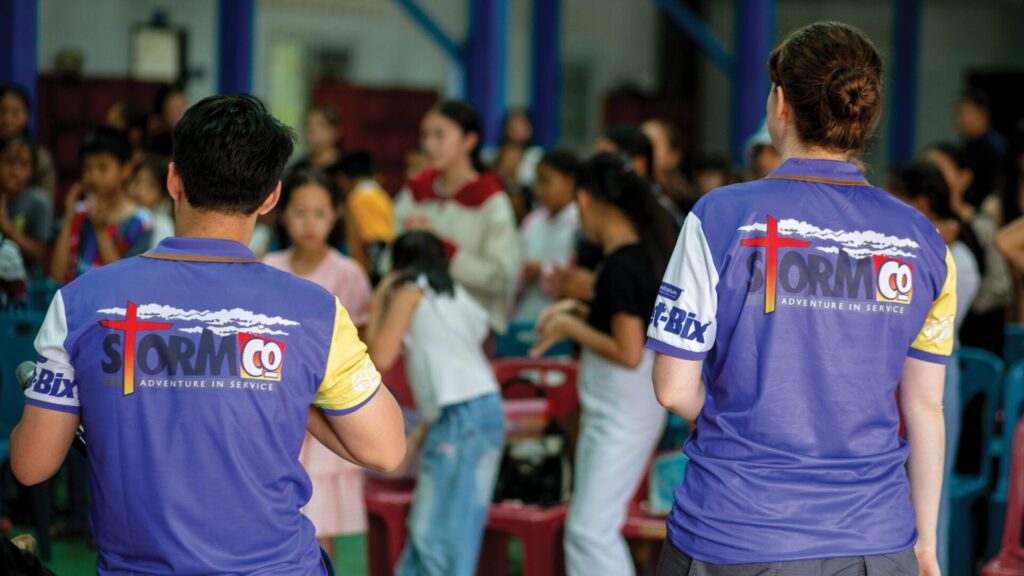It was only a couple weeks later, when I was back in the relative cool and quiet of my office, that I heard what she really said. And when I did, I felt a chill, both at what she said and how we missed it.
The conversation I had recorded took place in the small village of Kraras in the rural south-east of Timor Leste (also known as East Timor), where I had travelled with ADRA to visit its development projects. ADRA’s presence in the nation is only recent, and this village was the site of one of its first water projects: a well that pumped into a hilltop tank that fed a series of tap stations throughout the community, making clean water more easily accessible and creating greater opportunities for both sanitation and gardening.
After inspecting the pump station and tank, we were taken to talk with villagers about the difference the water had made to their lives. Sitting under the shade of the thick thatch of her small timber hut, we were introduced to Polini, an old woman with a greying hair pulled back tightly from her textured face, a hacking cough, and text I was unable to read tattooed on her bony arms.
We “spoke” with Polini through two interpreters—her local dialect to Tetum (an official language), then Tetum to English. It was in the gentle, accented voice of the second interpreter that the recording of the interview grabbed my attention so strongly in my office: “She says that her husband died in 1983.” [pullquote]
A few days after our conversation with Polini, we spent time in the Resistance Museum in Dili, Timor Leste’s capital, and read a couple books that gave a new and horrific perspective to the simple statement Polini made—and, in our ignorance, we missed—that morning.
In the context of Timor Leste’s modern history, Kraras became known as the “village of widows”. In September, 1983, more than 300 villagers were massacred by occupying Indonesian military forces. In retaliation for the killing of an Indonesian soldier in the area, soldiers simply rounded up all the men of the village and murdered them.
At the time, these rural areas were the heartland of the East Timorese resistance, largely isolated from and ignored by the outside world; so there were no headlines or international outcry. It was just another “minor” outrage of the bloody twentieth century, just another chapter in the Timorese struggle for independence. In our well-intentioned recent visit, we, too, had blundered into a place of pain, tripping over tragic memories, not really hearing the story we were told.
That’s why I’m proud that ADRA is working in Kraras. Among His “preferential option for the poor,” God has a particular concern for widows (see Psalm 146:9), so how much more a “village of widows”? We might have missed the import of Polini’s story, but God calls His people to this same urgent concern in strong terms: “Cursed is anyone who denies justice to foreigners, orphans, or widows” (Deuteronomy 27:19, NLT1).
In well-known verses such as Micah 6:8 and Matthew 23:23, the Bible repeatedly links the concepts of justice, righteousness, and faithfulness. Toward the end of the New Testament, James again made this link clear: “Pure and genuine religion in the sight of God the Father means caring for orphans and widows in their distress and refusing to let the world corrupt you” (James 1:27, NLT).
Whether by bringing water to a “village of widows,” by learning and listening more carefully to their stories, or by otherwise using our voice, influence, and resources to work for justice and peace in our communities and world today, we—and our world—need more of this “pure and genuine religion”.
- Scripture quotations marked NLT are taken from the Holy Bible, New Living Translation, copyright 1996, 2004, 2007 by Tyndale House Foundation. Used by permission of Tyndale House Publishers, Inc., Carol Stream, Illinois 60188. All rights reserved.






